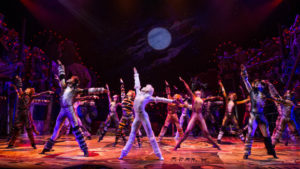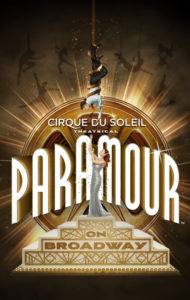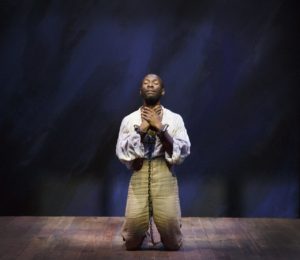 I took my eight-year-old daughter to see Cats the other night. It was the first time she’d seen it.
I took my eight-year-old daughter to see Cats the other night. It was the first time she’d seen it.
Mine, too.
How could this be? After all, I’d seen Les Miz, Phantom, and Miss Saigon, the three other British imports that propped up Broadway in its darkest, most audience-depleted hours thirty-odd years ago. I recall my parents asking me and my younger sister if we wanted to go. Our response was something like: Only if we were eight years old.
So…
Cats was her second Broadway show, after Aladdin. We were seated on the aisle, and she dressed the part, with a cat-decorated shirt and official Cats ears perched on her head. Smart move: the cats move freely about the aisles during the show, and several played right to her, which she adored. At intermission, audience members can go onstage at the Neil Simon Theatre and have their photo taken with wise Old Deuteronomy, played with regal charm by Quentin Earl Darrington. We did, and thus enjoyed the compleat Cats experience.
The actual show was more workmanlike, with director Trevor Nunn again at the helm. With Phantom and School of Rock on Broadway it’s like 1988 all over again for Andrew Lloyd Webber, who had a long dry spell in New York after his early smashes. It’s very strenuous fun, with performers in those famous costumes trying to outdo one another with acrobatic dancing and magic tricks and comedy routines as a means to get into kitty heaven, or something. (If you want specifics, consult the poetry of book writer T.S. Eliot, who won two Tonys for the musical eighteen years after his passing.) Be entertained! Be entertained! the show frisks and begs, and New York audiences lapped it up from 1982 to 2000, making Cats Broadway’s fourth longest-running show.
 I found it fatiguing, though nearness to my enthusiastic child got me through it. She was most intrigued by the Garbo-esque figure of Grizabella, who neither dances nor performs tricks, and appears without backstory, save for being a “glamour cat” fallen on hard times. My daughter loved how the other cats clawed and hissed at her. Grizabella is, however, weaponized, with a song: “Memory.” We get one short rendition, another longer one, then, finally, the cat’s meow, which sends her and Old Deuteronomy airborne for the grand finale.
I found it fatiguing, though nearness to my enthusiastic child got me through it. She was most intrigued by the Garbo-esque figure of Grizabella, who neither dances nor performs tricks, and appears without backstory, save for being a “glamour cat” fallen on hard times. My daughter loved how the other cats clawed and hissed at her. Grizabella is, however, weaponized, with a song: “Memory.” We get one short rendition, another longer one, then, finally, the cat’s meow, which sends her and Old Deuteronomy airborne for the grand finale.
At least that’s how it’s supposed to work–on the night we attended, the gears on their platform were stuck, and the performers were grounded as stagehands tried awkwardly to fix the mechanisms. That’s pretty much how I responded to the Grizabella of British pop star Leona Lewis, in the role that made stage legends of Elaine Paige in London and Betty Buckley in New York. They were lived in, spent, clawing back the years and exposing their raw inner selves as they sang that signature song; Lewis, who departed the show yesterday, was performing in an early round of American Idol, neither feeling nor giving too much, as if saving herself for the final tournament. I assume she gave it her best shot upon her exit, as Cats attempts, with a few stumbles, to recolonize Broadway. One little girl was pleased.
 Not pleasing anyone in particular is Paramour, the first new musical to open the 2016-2017 Broadway season. The show’s producer, Cirque du Soleil, wasn’t pleased; it recently pulled the show, which opened in May, for four days of fine-tuning. Stage shows and movies about the making of musicals tend more toward Staying Alive levels of unreality than the wit and insight of Singin’ in the Rain, and Paramour‘s show within a show is particularly daft, with a would-be movie musical starlet cast in a crazy-quilt historical epic that’s simply window dressing for Cirque acts. The Cirque part of the show, which fills the jumbo Lyric with that endless supply of acrobats and high-wire artistes and trampoline performers that the company seems to clone, is fine, if unsurprising given the brand’s frequent touring presentations. The Broadway musical part, which ends the show with a literal thud, needs four months of work to succeed. Or longer.
Not pleasing anyone in particular is Paramour, the first new musical to open the 2016-2017 Broadway season. The show’s producer, Cirque du Soleil, wasn’t pleased; it recently pulled the show, which opened in May, for four days of fine-tuning. Stage shows and movies about the making of musicals tend more toward Staying Alive levels of unreality than the wit and insight of Singin’ in the Rain, and Paramour‘s show within a show is particularly daft, with a would-be movie musical starlet cast in a crazy-quilt historical epic that’s simply window dressing for Cirque acts. The Cirque part of the show, which fills the jumbo Lyric with that endless supply of acrobats and high-wire artistes and trampoline performers that the company seems to clone, is fine, if unsurprising given the brand’s frequent touring presentations. The Broadway musical part, which ends the show with a literal thud, needs four months of work to succeed. Or longer.
 What do Cats and Paramour have in common with Nat Turner in Jerusalem, a small two-hander playing Off Broadway at the New York Theatre Workshop for another week? Nothing, but those are the breaks with a weekly column. I’ll give Nathan Alan Davis’ painfully well-intentioned drama about the incendiary slave uprising of 1831 a break and not dwell on its misfire–as with so many intermissionless shows that lack a strong point of view, sturdy acting, and compelling stagecraft, its 80 minutes crawled by, even with occasional jolts of rap music, and the wooden seats added to the discomfort. I saw it to pair it with the new film The Birth of a Nation, also about Nat Turner, and I did appreciate the historical note tucked into the playbill, which conveys as much as the show does in more digestible form. (It’s centered on Turner’s last meeting with his lawyer before his execution, and portrays him as a Christian martyr.) Woodrow Wilson called the original Birth of a Nation “history written in lightning”; Nat Turner in Jerusalem is history written in molasses.
What do Cats and Paramour have in common with Nat Turner in Jerusalem, a small two-hander playing Off Broadway at the New York Theatre Workshop for another week? Nothing, but those are the breaks with a weekly column. I’ll give Nathan Alan Davis’ painfully well-intentioned drama about the incendiary slave uprising of 1831 a break and not dwell on its misfire–as with so many intermissionless shows that lack a strong point of view, sturdy acting, and compelling stagecraft, its 80 minutes crawled by, even with occasional jolts of rap music, and the wooden seats added to the discomfort. I saw it to pair it with the new film The Birth of a Nation, also about Nat Turner, and I did appreciate the historical note tucked into the playbill, which conveys as much as the show does in more digestible form. (It’s centered on Turner’s last meeting with his lawyer before his execution, and portrays him as a Christian martyr.) Woodrow Wilson called the original Birth of a Nation “history written in lightning”; Nat Turner in Jerusalem is history written in molasses.





Comments